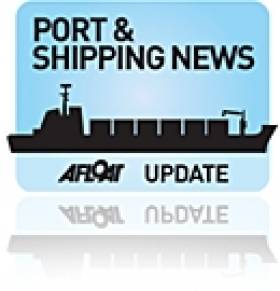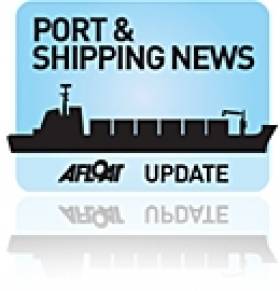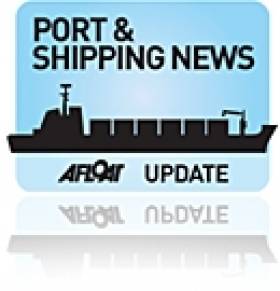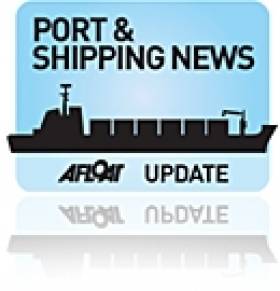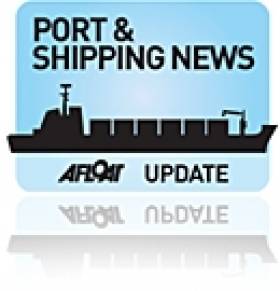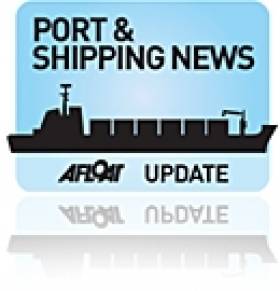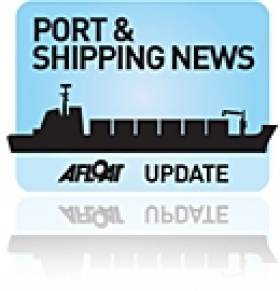Displaying items by tag: ESPO
#BlueBelt - The European Commission launched recently the 'Blue Belt' communication, which contains two concrete proposals that will contribute to establishing an internal market for maritime transport.
The first proposal contains an improvement to the already existing Regular Shipping Services (RSS), which provide lighter customs procedures for shipping companies using a regular route within the EU and transporting mainly EU goods. New provisions, submitted by the Commission last June, will upgrade RSS to make the procedures shorter and more flexible.
The consultation period for Member States will be shortened from 45 to 15 days. And companies will be able to apply in advance for an authorisation for Member States where they may want to do business. This would save time if that business opportunity arises. These provisions are expected to make the scheme much more attractive to short sea operators.
RSS is however limited to vessels that call exclusively at EU ports. Almost 90% of ships carry both EU and non-EU goods and stop frequently at EU and non-EU ports, for example in Norway, Northern Africa and Russia. For these ships, the Commission is proposing to significantly improve customs procedures by putting in place a system which can distinguish between EU and non-EU goods on board.
For this purpose, the Commission will bring forward, before the end of 2013, a proposal to create a harmonised electronic cargo declaration. This 'e-Manifest' would allow a shipping company to provide in all manifests (intra-EU and extra-EU) information on the status of goods to customs officials.
"We welcome these proposals as a step in the right direction", said European Sea Port Organisation (ESPO) Secretary General Patrick Verhoeven, "We especially look forward to contributing to the definition and implementation of the e-Manifest. Its data elements, functionalities and procedures should be carefully analysed to ensure smooth integration in port operations and processes."
The two proposals are expected to make the 'Blue Belt' in which ships can operate freely within the internal market, with a minimum of administrative burden, a reality by 2015. Currently, a ship moving between Antwerp and Rotterdam is still treated as though it came from China. This is because once ships leave Member States' territorial waters they are considered to pass the EU's external borders.
So ships travelling between ports in two different Member States are deemed to have left the EU Customs Territory and customs formalities are required when the vessel leaves the port of departure and again when the vessel arrives at the port of destination, even if both are EU ports.
European Social Dialogue Meeting for Ports Sector Underway
#PortSector – European port employers representatives and trade union organisations are meeting in Brussels today for the official inauguration of the Sectoral Social Dialogue Committee for the Port Sector.
The committee will act as a platform to discuss issues of European social reference for the sector. The work programme, which was formally adopted this morning, mainly focuses on health and safety matters associated with port work as well as training and qualifications.
Other topics include the impact of sulphur emission rules on port employment, the attractiveness of the sector to young workers and gender issues.
The social partners are FEPORT and ESPO on the employers' side and trade union organisations ETF and IDC. The participation of ESPO is limited to those countries where port authorities employ dockworkers or are otherwise involved in collective agreements between port employers and dockers' unions.
"We are pleased that the social dialogue got started and we hope to reach concrete results soon that will contribute positively to our sector", said ESPO Secretary General Patrick Verhoeven, "At the same time, we must keep expectations realistic. This committee cannot and should not replace social negotiations and collective agreements at national or local port level. It will also be extremely difficult to deal with market and competition restrictions, given the specificities of individual cases."
The European Commission announced that it is willing to facilitate the social dialogue and respect the autonomy of social partners.
The Commission however indicated that, in time, it expects the social dialogue to also deal with labour conditions, on which a comprehensive fact-finding study was recently published by the Portius institute.
The Commission further intends to start a research project soon that will examine health and safety, training and qualification challenges in EU ports. Social partners will be involved in this project. An overall review of the social dialogue is planned for 2016, to assess progress made.
Ports & Shipping Review: Fodder Record, Ferry Facelift, Maritime Day, New ESPO Head, Magnifica’s Call and more…
#ShippingReview: Over the last fortnight Jehan Ashmore has reported from the shipping scene where the fodder crisis, the worst in over 50 years has led to ports witness unprecedented levels of animal feed imports.
New Zealand ferry operator Interislander which has extended the charter of Dublin based ICG group ro-pax ferry Kaitaki is to receive a major refurbishment by Newry based MJM Marine.
Foynes is to welcome three cruise callers this season, starting with Voyages of Discovery's 15,396 tonnes Voyager.
Malta hosted the 6th European Maritime Day, where a conference of experts from all maritime sectors from around Europe and also present was Dinny McGinley TD, Minister of State who made a speech that was welcomed by the Marine Institute.
Vice President Siim Kallas European Commissioner for Mobility and Transport, announced the publication of a regulation proposal on market access to port services and financial transparency, as well as a new communication on ports policy.
Another maiden port of call to Dublin Port was by the 95,000 tonnes MSC Magnifica, the 'Musica' class vessel built in 2010 is operated by MSC Cruises, which last year started calling to Irish ports.
European Sea Ports Organisation (ESPO) has appointed Isabelle Ryckbost as the new Secretary General, succeeding Patrick Verhoeven.
Also heard at the 10th agm of the ESPO conference held in Varna, Romania, was mixed reaction over the new ports policy on regulation and communication announced by the European Commission.
#NewESPOSecretary -At a meeting of the European Sea Ports Organisation (ESPO) held in the Romanian Black Sea port of Varna, the General Assembly of the organisation today appointed Isabelle Ryckbost as the new Secretary General.
Ms Ryckbost succeeds Patrick Verhoeven in this function who is taking on the position of Secretary General at the European Community Shipowners' Associations (ECSA) this summer.
Isabelle Ryckbost comes with an extensive background in EU policy-making and ports. She worked for more than fifteen years in the European Parliament, where she led the office of Dirk Sterckx, a Belgian MEP who was member of the Committee on Transport and Tourism.
During this period, she worked on a number of port-related files, including the two port service Directive proposals and the maritime safety packages. In 2009 Isabelle Ryckbost joined the port sector as Director of the European Federation of Inland Ports (EFIP), which operates from the ESPO offices in Brussels.
"I very much welcome Isabelle on board", said ESPO Chairman Santiago Garcia-Milà, "We are all confident she will do a great job. Apart from her professional and personal qualities, she is a true insider in Brussels and has an already operational network in our sector. This will ensure a very smooth transition."
"I feel honoured to be appointed as ESPO's new Secretary General. Replacing Patrick is quite a challenge I must say. But, with the support of the members and the assistance of a strong team at the secretariat, I hope to continue the good work of my predecessor".
She added "I look forward to representing Europe's seaports in Brussels. Ports are more than a business sector, they seek to combine economic and public interests. Being the main trade gates to Europe, they have a crucial role to play for our economy and welfare. But at the same time, ports are the driving force of many regions and have a responsibility towards their local community"
"I hope, where possible, to help oiling these engines of growth and, where needed, to protect them. I believe each port in Europe has its role and its place" concluded Ryckbost.
Ryckbost will take up her new function on 1 August. She will become the third Secretary General of ESPO. Prior to Patrick Verhoeven, who led the secretariat for the past thirteen years, the office was managed by the late Pamela Le Garrec.
ESPO Wants to Safeguard Autonomy of Port Authorities
#EUPortsPolicy – Vice President Siim Kallas, European Commissioner for Mobility and Transport, has announced the publication of a regulation proposal on market access to port services and financial transparency, as well as a new communication on ports policy.
European Sea Ports Organisation (ESPO) welcomes the fact that both initiatives value the important role that seaports play for the European economy. This complements the Commission's earlier initiative to give ports a central position in the Trans-European Transport Networks.
ESPO is however concerned about the potential implications the regulation proposal may have on the autonomy of port authorities.
"We appreciate that the Commission intends to recognise the central role of port authorities and we support the provisions of the regulation that aim to create greater financial transparency", said ESPO Secretary General Patrick Verhoeven, "At the same time, we are concerned about the competencies that the regulation attributes to other authorities and the impact some of the proposed procedures may have on the commercial freedom of ports and their ability to invest."
The regulation proposal excludes cargo handling and passenger services from market access rules. ESPO believes that an inclusive, non-legislative approach, covering all port services, would have been more balanced and proportional in this respect.
On 29 May, the General Assembly of ESPO will adopt a formal position, prior to the organisation's annual conference in Varna, where the new proposals will be discussed for the first time with industry stakeholders.
In the weeks following the conference, ESPO intends to further analyse the regulation proposal, taking into account the impact on the diversity of its membership.
"We will then formulate a number of concrete recommendations for the forthcoming debate in Parliament and Council. We also look forward to exchanging views with other European stakeholder organisations, to see where we might have points in common", concluded Patrick Verhoeven.
EU Parliament Rejects Controversial Ship-Recycling Levy
#ShipRecycling – The European Parliament has today rejected proposals to introduce a levy on all ships calling at EU ports that would finance a fund to support sustainable recycling of ships.
The proposal had been introduced earlier by Parliament's Committee on Environment, Public Health and Food Safety (ENVI).
Instead, MEPs approved an amendment which calls upon the European Commission to submit by 2015 a legislative proposal for an incentive-based system that would facilitate safe and sound ship recycling.
"We welcome the outcome of the vote", said European Sea Ports Organisation (ESPO) Secretary General Patrick Verhoeven, "We understand the need to create an incentive for shipowners to opt for sustainable recycling, but the side-effects of the levy on the competitiveness of EU ports would have been very negative in terms of traffic evasion, changed ship calling patterns and modal back shift, not to mention the bureaucracy involved with it.
By referring the task to create an incentive-based system to the Commission, there will be time to work out an adequate framework which would match the aim of creating sustainable conditions for ship recycling with respect for international rules and the competitiveness of European ports."
The vote by the EU Parliament is not a final one, it gave a mandate to open negotiations with Council in order to come to an agreement in first reading.
European Transport Sector Say “Yes, But… to EU Transport Budget Deal
#EuroPortBudget- As previously reported, the EU budget for transport infrastructure projects over the next seven years, has been agreed at €23 billion.
Among the reaction of several bodies, including the European Sea Ports Organisation (ESPO), is that this is a significant step forward compared to the €8 billion that was set aside for the Trans-European Transport Networks (TEN-T) in the 2007-2013 period, an amount which member states have fully taken up according to the latest Commission data.
With a cut of one third in the €32 billion initially foreseen for transport infrastructure projects, transport does not appear to be considered a priority sector in the next budget.
But at the same time, the substantial cut that was made compared to the initial €32 billion will seriously affect the implementation of the transport infrastructure plan the Commission has been developing over the last three years, in close co-operation with Member States and stakeholders.
In a first common reaction to this result, European transport organisations EFIP, ESPO, INE, IRU, PDI, ECG, ECSA, ETF, ECASBA, ACI Europe and CER say: "We are satisfied that the transport infrastructure envelope has increased, compared to the current multi-annual budget. Nonetheless, it is a missed opportunity that European leaders decided to cut a growth-stimulating sector.
European President Van Rompuy said the budget must be an engine for growth and jobs in the future. It is high time for national governments and their leaders to realise that transport is the engine of the European economy.
If people and goods cannot move efficiently, growth and economic development are constrained. In our view, transport therefore deserves more than a mere 2.4% share of the total budget."
Even if European transport organisations EFIP, ESPO, INE, IRU, PDI, ECG, ECSA, ETF, ECASBA ACI Europe and CER remain critical about the deal, they believe it is important that the new EU budget plan for 2014-2020 is adopted soon.
"Realistically, the TEN-T core network and the already defined projects of the ten multimodal corridors cannot be fully implemented with such a small envelope. It means that the robust methodology developed by the European Commission to select projects that are essential to the European transport network cannot be applied.
A first come, first serve basis will prevail over the network logic that the internal market so desperately needs. We therefore call on Member States to engage with the European Parliament to make this budget more growth-oriented.
In addition, we fully support Parliament's plea to have a mid-term review in a few years as a way to assess potential reallocations of the budget towards growth-generating sectors like transport. In a similar vein, we agree that a certain flexibility within budget allocations would benefit its overall effectiveness.
Last but not least, a swift agreement on the EU budget will allow for progressing with implementing the new transport infrastructure plan, as outlined in the TEN-T and CEF regulations."
EU Ports Framework Policy Conference in Brussels
#PORTS NEWS – A major two-day ports conference organised by the European Commission, started today in Brussels, where 400 delegates representing different stakeholders within the port sector are attending.
The aim of the conference is to analyse the current EU policy framework for ports, which is laid down in a communication of the Commission that was published in 2007. The outcome of the review is not decided yet, with options ranging between doing nothing, guidance on application of Treaty rules and full-blown legislation.
"We firmly believe that the European Union has the potential to be a positive force in establishing a renaissance of port management and policy", said European Sea Ports Organisation (ESPO) Chairman Victor Schoenmakers in his statement at the conference. "This can be done by, on the one hand, ensuring a level playing field and legal certainty, and, on the other hand, fostering growth and development of ports."
Raising the specific challenges of port authorities, Mr Schoenmakers highlighted access to port land as a principal point of attention. "The most important asset that port authorities have is land. The way we give access to that land to operators is therefore essential. Whether we do this through public domain concessions or private land lease contracts is irrelevant.
"What matters is the ability to balance transparency and flexibility when using these instruments. Having clear, but also proportional guidance on the application of relevant Treaty rules is for us therefore an essential element of a common ports policy, next to guidance on State aid and guidance on the freedom to provide services."
The ports policy conference will be followed by a further consultation on the options at hand and an impact assessment. The outcome of the process is expected for spring next year.


























